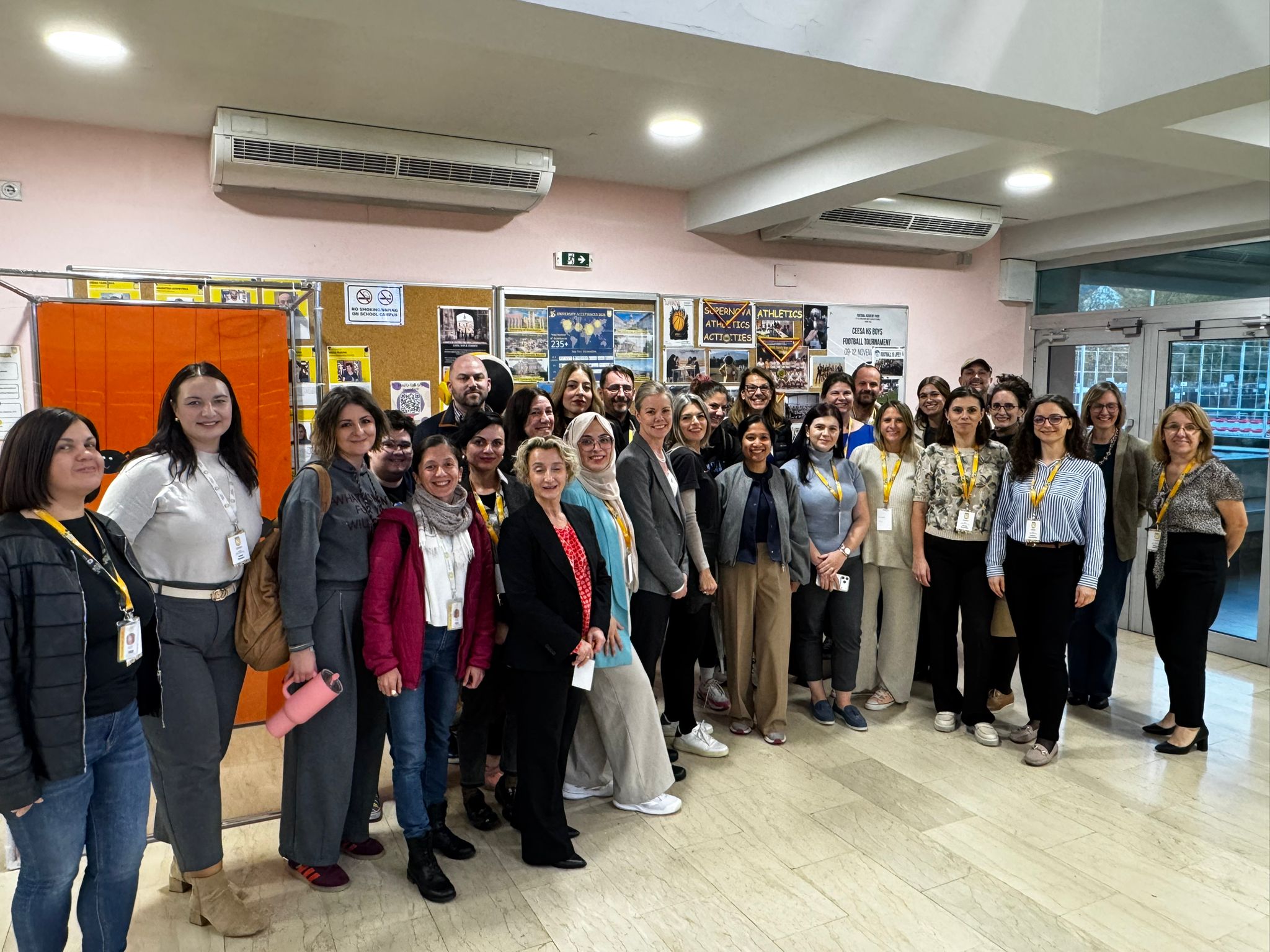Tips for Navigating Confidentiality in Inclusive Classrooms

It’s human nature to be curious. But sometimes, whether well-meaning or not, our curiosity crosses the line between what we need to know and what’s meant to be private. I can think of several occasions when I had to navigate that line in my career, but the first that comes to mind involved a student named Nico.
Nico was a neurodivergent student who had frequent meltdowns in the classroom. As his teacher, I’d been working with him and his family to develop a plan to support him at school. One day, I was walking down the hallway, and a fellow teacher who worked on the same floor stopped me to chat. We talked casually about the weather, classes, and how our respective days were going. Everything was easy going until she suddenly asked me about Nico’s diagnosis. I was taken aback and felt put on the spot because I knew that this information was confidential.
The fellow teacher's question made me feel uncomfortable, and because we knew each other socially, I felt a lot of pressure to answer her question. I wondered if she was genuinely interested in Nico's well-being or if there was something else she was trying to get at. I didn't want to offend her, but I knew I couldn't share this confidential information with her. In the end, I politely declined to answer her question and emphasized the need to keep student information confidential.
About a week later, this same teacher approached Nico’s teaching assistant and asked her the same question! The teaching assistant initially shared my perspective, but despite her unease about breaching confidentiality, she responded while acutely aware of the power dynamics at play. After this incident, I took steps to emphasize the importance of confidentiality and respect by reinforcing these values with all the teachers across the school. It was a learning opportunity for everyone.
Our students depend on us to keep certain information confidential. As teachers, we need to build trust between us, our students, and their families for them to feel comfortable, welcome, and included at school. Sharing confidential information compromises that trust. Furthermore, it likely only tells a portion of a student’s story rather than giving a complete picture.
Fortunately, there are steps you can take to ensure that all sensitive information stays private.
Prevent Problems Before They Start
As with many things in life, preventing uncomfortable situations from happening in the first place is much easier than doing damage control later. A good place to start is with the confidentiality agreement. Understanding the school's confidentiality and discretion policies is essential to protect both yourself and the school community. Take the time to review the agreement carefully and familiarize yourself with the school's procedures and expectations. Just like our students, we need to understand expectations in order to meet them.
If you have a particular student whom you foresee other faculty and staff members having questions about, it’s helpful to have a conversation with everyone at the beginning of the school year. Speaking with families to let them know the goal and purpose of these conversations is important. Of course, you’ll need their permission, but taking some of the mystery away should help quiet some of the questions later.
It may also be helpful to have the students themselves share information. This doesn’t just apply to those receiving services but to all students. Have everyone create a video, audio clip, poster, or something else they’re comfortable sharing about themselves. Doing this as a whole class demystifies sharing strengths and stretches, and can have a significant impact on teachers as they learn more about their students.
Use Discretion in Public Spaces
The next step is to stay mindful of your surroundings when discussing private information. Having conversations about specific students in common areas, such as the staff lounge or hallways, can lead to unintentional breaches of confidentiality. Private information shared in these spaces can be overheard by other staff members or even students and parents, which can be detrimental to the student's privacy and reputation.
To avoid these situations, it's best to have detailed conversations about students in private spaces, such as your classroom or an empty conference room. If you do need to have a conversation in a common area, keep your voice low and avoid using specific student names or identifying details.
Additionally, if you overhear a conversation about a student that you shouldn't be privy to, it's important to respectfully redirect the conversation to a more appropriate setting.
Have a Backup Plan
Despite your best efforts to prevent uncomfortable situations from happening, it’s inevitable that you’ll have questions about your students. They may come from other teachers, students, or even parents of students. If you encounter a situation where someone asks you a question that makes you uncomfortable or unsure, it's important to have a plan in place. Here are three strategies to keep in mind:
Redirect
As an educator, it's important to approach these situations with empathy and a willingness to listen. Rather than shutting down the conversation entirely, it may be helpful to gently redirect focus. For example, if a question is coming from a classmate’s parent, you could say something like, "I understand your curiosity, but I think it's important for us to focus on how we can best support your child in the classroom. What are some strategies we could use to help them feel more comfortable and engaged?"
Redirecting can also mean referring a question to someone else who may be more qualified to answer it, such as the lead teacher or a school administrator.
Use Key Phrases
Another effective strategy is to prepare some key phrases that you can use to politely deflect the question. Here are some example phrases you could use:
"I'm not sure if I'm able to share that information; let me double-check and get back to you."
"I'm not able to discuss any student's personal information."
"I need to respect all my students' privacy, so I can't share details about them."
"For confidentiality reasons, I can't provide specifics about any individual student."
Remind
In some cases, it may be necessary to have a more direct conversation about the importance of confidentiality and respecting the privacy of other students and families. This conversation should be handled with sensitivity and respect, but it's important to make it clear that sharing personal information about other students is not appropriate.
Know When Sharing Information Is Helpful
There does come a time when it can be helpful, or even necessary, to share some basic information. For example, there may be situations where you can’t help a student without drawing attention from those around you — like if you need to get down on the floor with a student. If this is a possibility, preempt your coworkers’ concern or offer to help by letting them know one of your strategies is joining students in their most comfortable position, and all is well. Let them know that you'll ask for their help if you need it, and ask them not to jump in during those tense moments.
In addition, people tend to fill in the gaps when they’re not provided enough information. By giving accurate information from the beginning, you can prevent misunderstandings and ensure that confidential information is kept private. Furthermore, discussing information you’ve been given permission to share can help model appropriate terminology, provide guidance on how staff can support students during difficult situations, and offer insights on how to connect with students based on their interests.
As educators, we need to be aware of the power dynamics in our relationships with students, families, and colleagues. We must always respect their privacy and dignity and uphold the confidentiality policies put in place to protect them. Being knowledgeable of expectations, staying mindful throughout each school day, and having a plan in place when situations arise will keep confidentiality intact.
Solid confidentiality practices are particularly important when collecting classroom data. Learn more about effective data collection on my blog.


